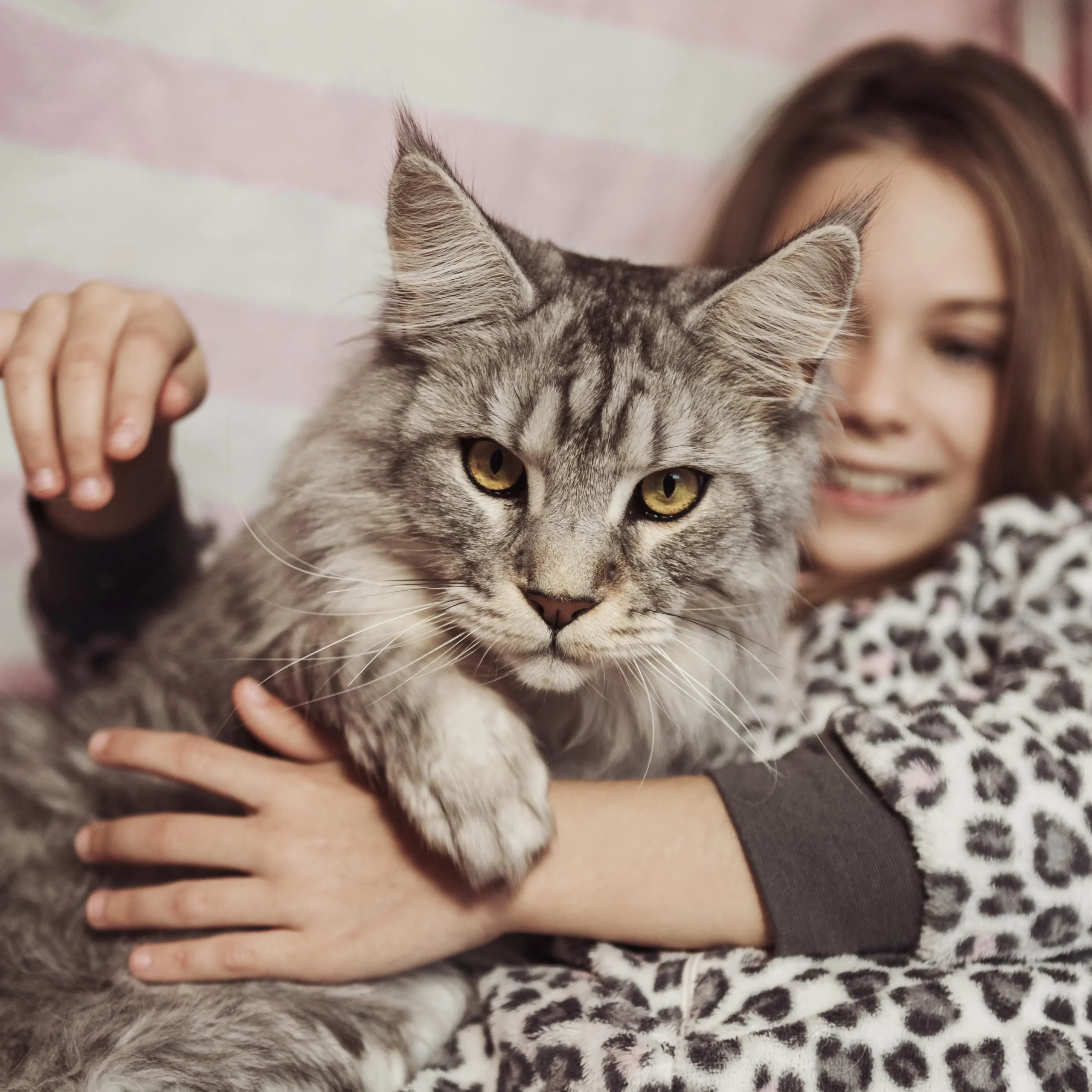Call / Whatsapp 0301-7475573 , 0313-4343476
The best discounts this week
Every week you can find the best discounts here.
Brit Premium By Nature Gravy Chunks Sterilised Jelly Cat Food-Chicken (100g)
Brit Premium By Nature Adult Jelly Food-Salmon Fillets (85g) (Copy)
Brit Premium By Nature Adult Jelly Food-Chicken Fillets (85g)
Brit Premium By Nature Kitten Jelly Food-Chicken Fillets (85g)
Prochoice Super Premium Wet Food For Adults-Chicken and Liver (85g)
Fluffy Dry Cat Food For All Cats (10 Packs Deal)
The Ultimate Guide to Cat Care: Tips for Keeping Your Feline Friend Happy and Healthy
Cats are independent, mysterious creatures that bring joy and companionship to millions of homes. Whether you’re a first-time cat owner or a seasoned pet parent, taking care of your feline friend is key to ensuring they live a long, healthy, and happy life. In this blog, we’ll cover the essentials of cat care, from their dietary needs to grooming habits, and everything in between.
1. Feeding Your Cat: A Balanced Diet
One of the most important aspects of cat care is providing the right nutrition. Cats are obligate carnivores, which means they require animal-based protein to thrive. Here’s what you need to know:
- Wet vs. Dry Food: Both wet and dry cat food have their advantages. Wet food is great for hydration, as it contains more moisture, while dry food can help with dental health. A combination of both is often recommended for a balanced diet.
- Portion Control: Overfeeding can lead to obesity, so it’s essential to measure portions based on your cat’s age, weight, and activity level. Your vet can help determine the right amount of food.
- Treats in Moderation: Treats are a great way to bond with your cat, but they should be given sparingly. Too many treats can upset your cat’s diet.
- Fresh Water: Cats often don’t drink enough water, so make sure they always have access to fresh, clean water. Some cats prefer drinking from a fountain, so you might want to try one of those.
2. Creating a Comfortable Living Space
Cats are territorial by nature, so creating a safe, comfortable, and enriching environment is crucial for their well-being.
- Sleeping Area: Cats love having a cozy spot to nap. Provide them with a soft bed, cat tree, or a quiet corner where they can curl up.
- Litter Box: Keep the litter box clean and in a quiet, private location. Make sure to scoop it daily and change the litter regularly. If you have more than one cat, you should have one litter box per cat, plus an extra.
- Climbing and Scratching: Cats love to climb and scratch to mark their territory and keep their claws sharp. Provide scratching posts, cat trees, and shelves to satisfy this instinct.
3. Regular Grooming
Grooming is an essential part of cat care, even though cats are generally very good at grooming themselves. Here’s what you should be doing:
- Brushing: Regular brushing helps reduce shedding, prevents hairballs, and keeps your cat’s coat healthy. Long-haired cats, in particular, require more frequent brushing to avoid mats and tangles.
- Nail Trimming: Cats’ nails can grow long and sharp, so regular trimming is necessary. If you’re unsure how to trim your cat’s nails, ask your vet or a groomer for guidance.
- Ear Cleaning: Some cats, especially those with floppy ears, may require occasional ear cleaning. Be gentle and use a cat-safe ear cleaner to remove any wax or debris.
- Dental Care: Oral hygiene is often overlooked but crucial. Regular brushing with a cat toothbrush and toothpaste can help prevent dental disease and bad breath. If your cat doesn’t like brushing, consider dental treats or water additives.
4. Health Checkups and Vaccinations
Routine veterinary visits are key to keeping your cat healthy. Make sure your cat is up to date on vaccinations, flea prevention, and other health treatments.
- Vaccinations: Cats need vaccinations to protect them from diseases like rabies, feline distemper, and feline leukemia. These should be administered by a vet at regular intervals.
- Parasite Control: Fleas, ticks, and worms can cause serious health problems for cats. Your vet can recommend a good flea and tick prevention plan and deworming schedule.
- Spaying/Neutering: If your cat isn’t already spayed or neutered, it’s a good idea to consider having the procedure done. It prevents unwanted litters, can reduce certain behavioral problems, and may improve overall health.
- Watch for Warning Signs: Cats are experts at hiding illness, so it’s essential to be aware of any behavioral changes. If your cat is eating or drinking more than usual, losing weight, or seems lethargic, it’s time to schedule a vet appointment.
5. Providing Mental and Physical Stimulation
Cats are intelligent and curious creatures, and they need mental and physical stimulation to stay happy.
- Toys: Play is essential for a cat’s mental and physical health. Invest in a variety of toys, such as feather wands, laser pointers, and interactive puzzle toys. Playtime can help prevent boredom and obesity.
- Cat Companions: If you have the time and resources, consider adopting another cat. Cats can be social animals, and having a playmate can provide them with companionship, but be sure to introduce them properly to avoid territorial issues.
- Window Perch: Many cats love watching the outside world. If possible, create a window perch where your cat can safely observe birds, cars, and people.
6. Understanding Your Cat’s Behavior
Cats communicate in subtle ways, so understanding their behavior is crucial for a strong bond.
- Purring: While purring often indicates contentment, it can also be a sign of stress or pain, especially if it’s accompanied by other unusual behaviors. Pay attention to the context of purring.
- Hiding: If your cat is suddenly hiding more than usual, it could indicate illness or stress. Cats often retreat to quiet spaces when they’re not feeling well.
- Scratching: Scratching is a natural behavior for cats, but if your cat is scratching furniture or carpets, providing a scratching post is a good solution.
- Meowing: Some cats meow constantly, while others are quieter. If your cat is suddenly meowing more than usual, it could be a sign of discomfort, hunger, or a need for attention.
7. Caring for Older Cats
As your cat ages, their needs may change. Senior cats are more prone to arthritis, dental disease, and kidney problems. Regular vet checkups become even more important in their later years, and you may need to adjust their diet and activity levels accordingly.
- Comfortable Bedding: Older cats often need softer, more supportive bedding to help with joint pain.
- Easy Access: Make sure your senior cat has easy access to their food, water, and litter box, especially if they have mobility issues.
- Regular Monitoring: Keep an eye on changes in behavior, eating habits, or litter box usage. Early intervention can make a significant difference in your cat’s quality of life.
Conclusion: A Lifelong Commitment
Caring for a cat is a rewarding experience, but it requires time, patience, and commitment. By providing a balanced diet, regular vet care, grooming, and plenty of play and love, you’ll ensure that your feline friend stays healthy, happy, and content for years to come. The bond you share with your cat is special, and by taking the right steps in their care, you’ll create a lifelong friendship built on trust and affection.
Remember, cats may be independent, but they still rely on us for their well-being. So, keep those toys handy, make sure the litter box is clean, and give them plenty of love — they’ll thank you with headbutts, purrs, and maybe even a little catnip-fueled zoomie!










